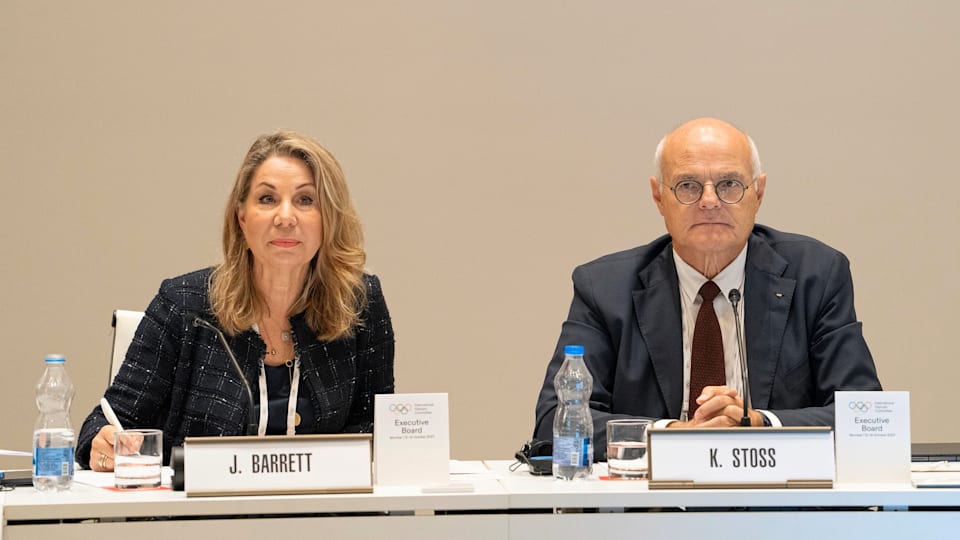IOC Executive Board discusses sustainable future for the Olympic Winter Games and the opportunity for a 2030-2034 double allocation
The preliminary findings of a report looking at a sustainable future for the Olympic Winter Games were today presented to the International Olympic Committee (IOC) Executive Board (EB) during the last day of its meeting in Mumbai, India.

They were delivered by the Chair of the IOC’s Future Host Commission for the Olympic Winter Games, Karl Stoss, and included preliminary results from two studies. Also included was a proposal to be submitted to the 141st IOC Session, which is meeting in Mumbai, from 15 to 17 October, to discuss a double allocation for the Olympic Winter Games in 2030 and in 2034 by the IOC Session in 2024.
Preliminary results
At its December 2022 meeting, the IOC EB approved the introduction of two criteria for hosting future Olympic Winter Games:
- For sustainability reasons, future Olympic Winter Games hosts should have a target of using only existing or temporary venues; and
- Proposed snow competition venues should be climate reliable until at least the middle of the century.
Following these recommendations, two studies were commissioned by the Future Host Commission:
- One to identify the National Olympic Committees (NOCs) with the most existing venues that meet the requirements of the International Olympic Winter Sports Federations (IFs); and
- Another one to check if these existing venues would be climate reliable until at least the middle of the century.
The preliminary results of these two studies, presented to the IOC Executive Board, show that:
- There are currently 15 NOCs on three continents that already have at least 80 per cent of the venues needed, which means having at least nine out of the 11 venues required for the Olympic Winter Games;
- 10 out of the 15 NOCs have either recently hosted the Games or are interested in hosting the Games in the future.
By 2040, two of these 15 NOCs will no longer have the necessary reliability for the Olympic Winter Games held in February and five will not for the Paralympic Winter Games held in March, which means a pool of potential hosts reduced to around 10 NOCs.
Due to the impact of climate change, this number will be further reduced by the middle of the century.
IOC President Thomas Bach said: “The Future Host Commission reported that the studies are works in progress and the final results will be presented in due course, but the preliminary results already show that we need to adapt the Olympic Winter Games given the impact of climate change. In collaboration with the winter sports community, we need to look for solutions for the future.”
The Future Host Commission has already started to work on how to address this very concerning situation.
This implies deliberations on a potential rotation, the composition of the programme, the different needs for sports on ice and snow, and many other elements.
Double allocation
As more time is needed to address the complexity of this issue, the Future Host Commission has proposed to the IOC EB to consider a double allocation of the 2030 and 2034 Olympic Winter Games, should the appropriate conditions exist. The IOC EB gave the green light for this proposal, which has been supported by the presidents of all seven Olympic IFs. This will now be put to the IOC Session for further discussion.
In terms of the timeline, the Future Host Commission will come back to the IOC EB in November with respect to opening a Targeted Dialogue, with a view to an IOC Session election in 2024.
Please find here all the information about the IOC’s commitment to supporting the global efforts to address climate change.